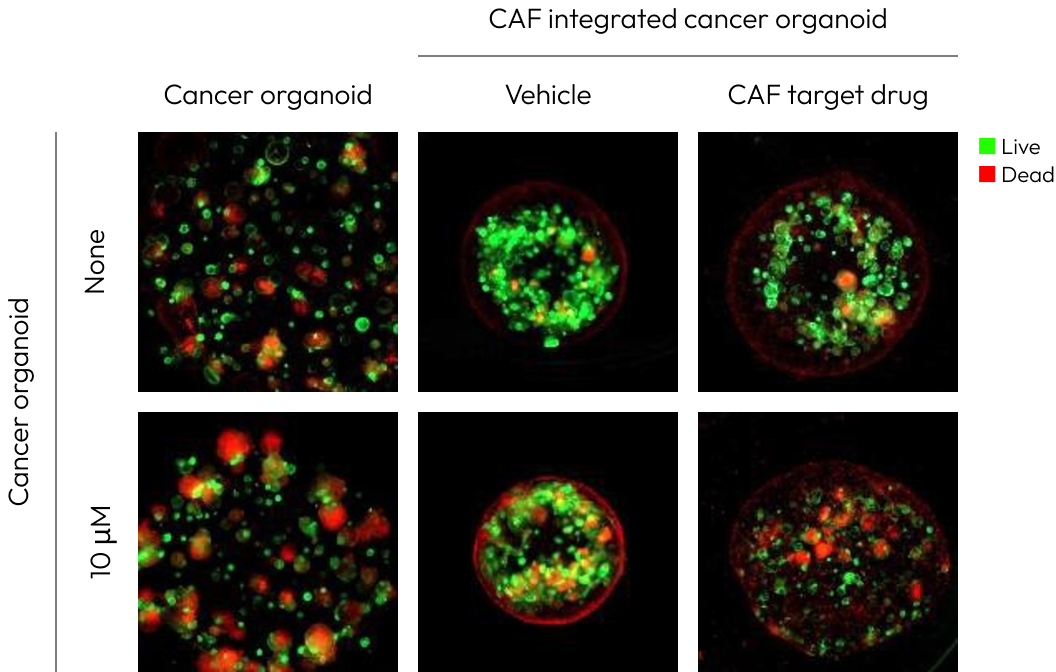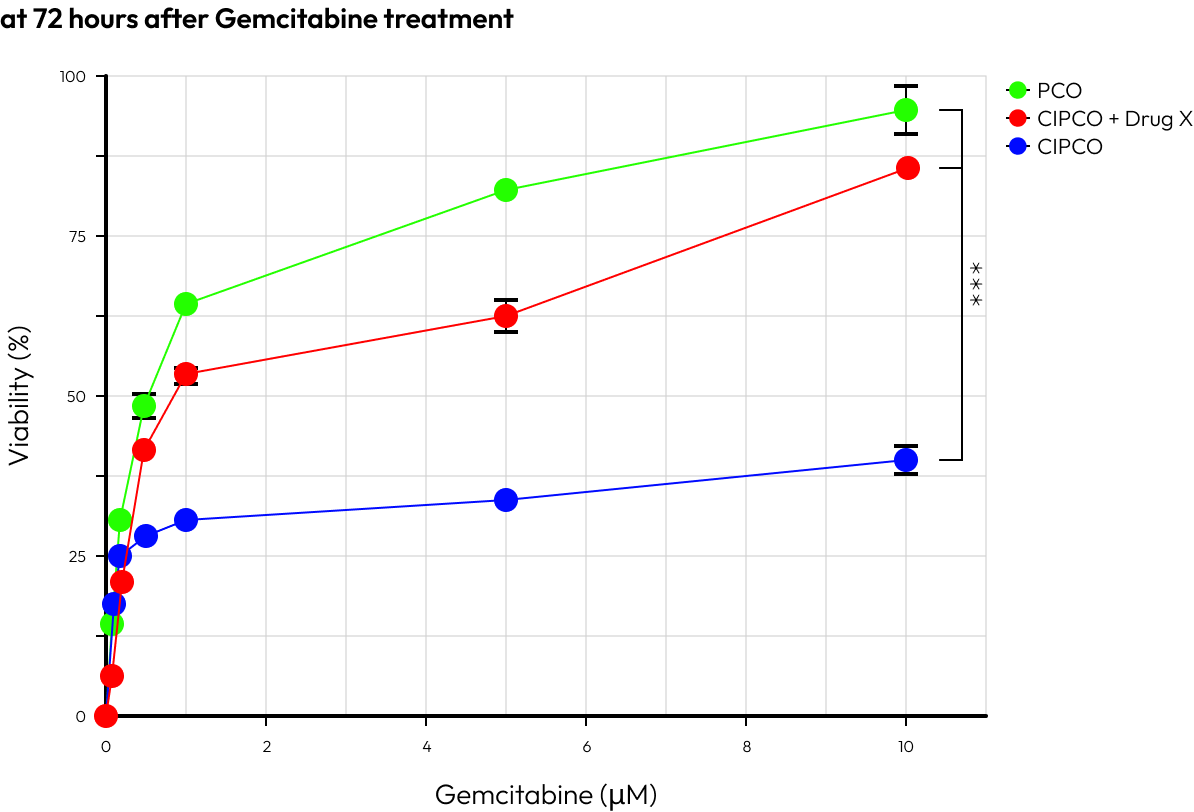
Price | |
Organism | |
Product Type | 2D Cell |
Tissue | Cancer Tissue |
Disease |
Applications
Colorectal cancer
CAFs support cancer stem cell maintenance, drug resistance, and tumor invasion by modulating the extracellular matrix and inflammatory cytokines
Non-small cell lung cancer
CAFs facilitate invasion, metastasis, angiogenesis, and immune evasion through ECM remodeling and cytokine secretion.
Pancreatic cancer
CAFs promote tumor growth, fibrosis, and immune suppression, creating a dense and resistant tumor microenvironment.
Breast cancer
CAFs enhance tumor growth, invasion, and immune evasion by producing growth factors, remodeling the ECM, and interacting with other stromal cells
Cholangiocarcinoma
CAFs induce fibrosis and ECM hardening, promoting tumor invasion, metastasis, and immune evasion
Cancer-Associated Fibroblasts(CAFs) play a crucial role in the evaluation of anticancer drugs.
They modulate the cancer environment, making it challenging for anticancer drugs to infiltrate and limiting treatment effectiveness.
Additionally, they regulate immune responses, restricting the efficacy of anticancer immunotherapy.
Moreover, CAFs promote cancer invasion and metastasis, potentially inducing resistance to anticancer drugs.
Considering these functions of CAFs is crucial for accurately assessing the efficacy of anticancer drugs and developing strategies to address these challenges.
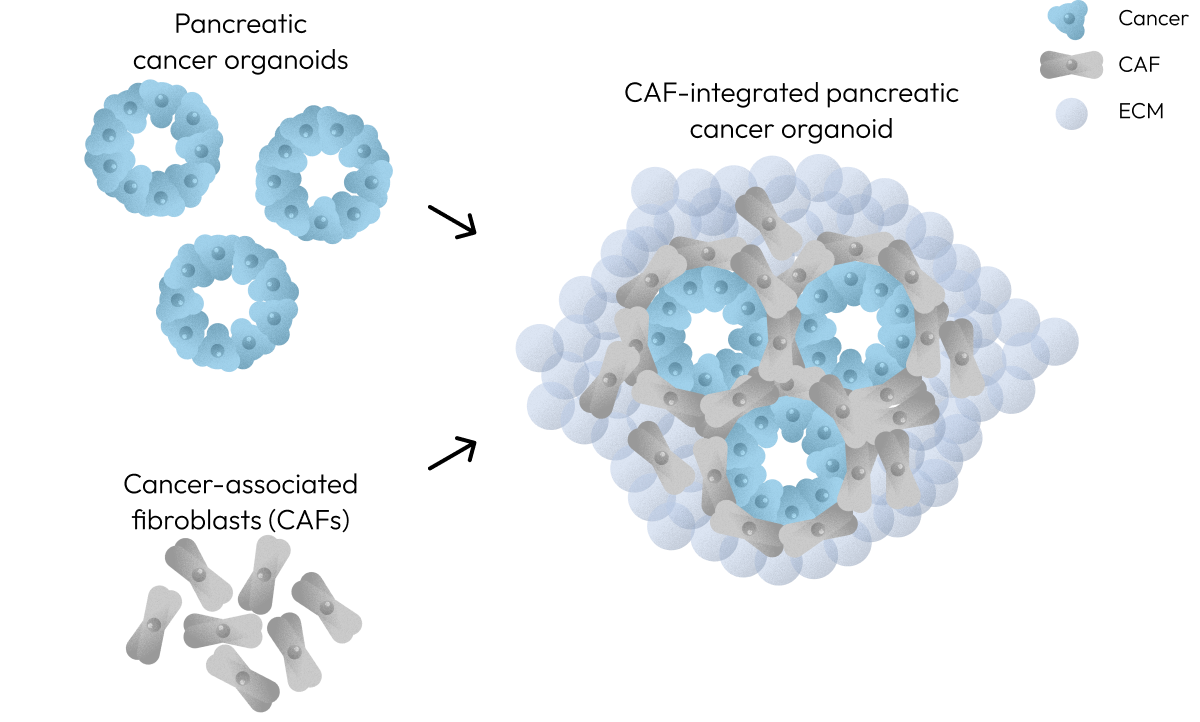
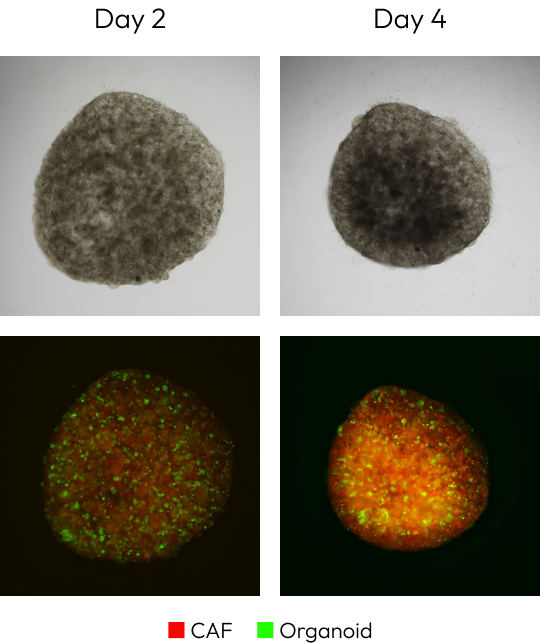

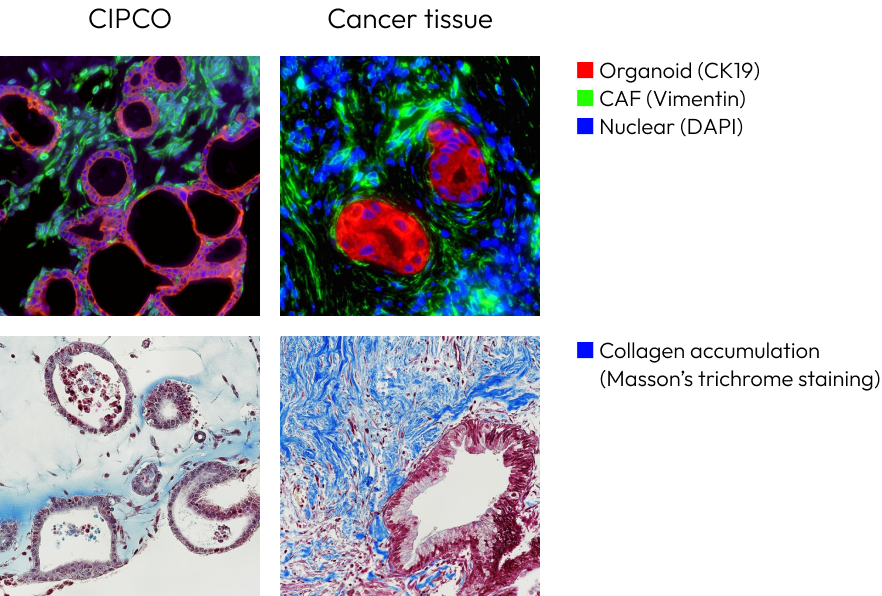
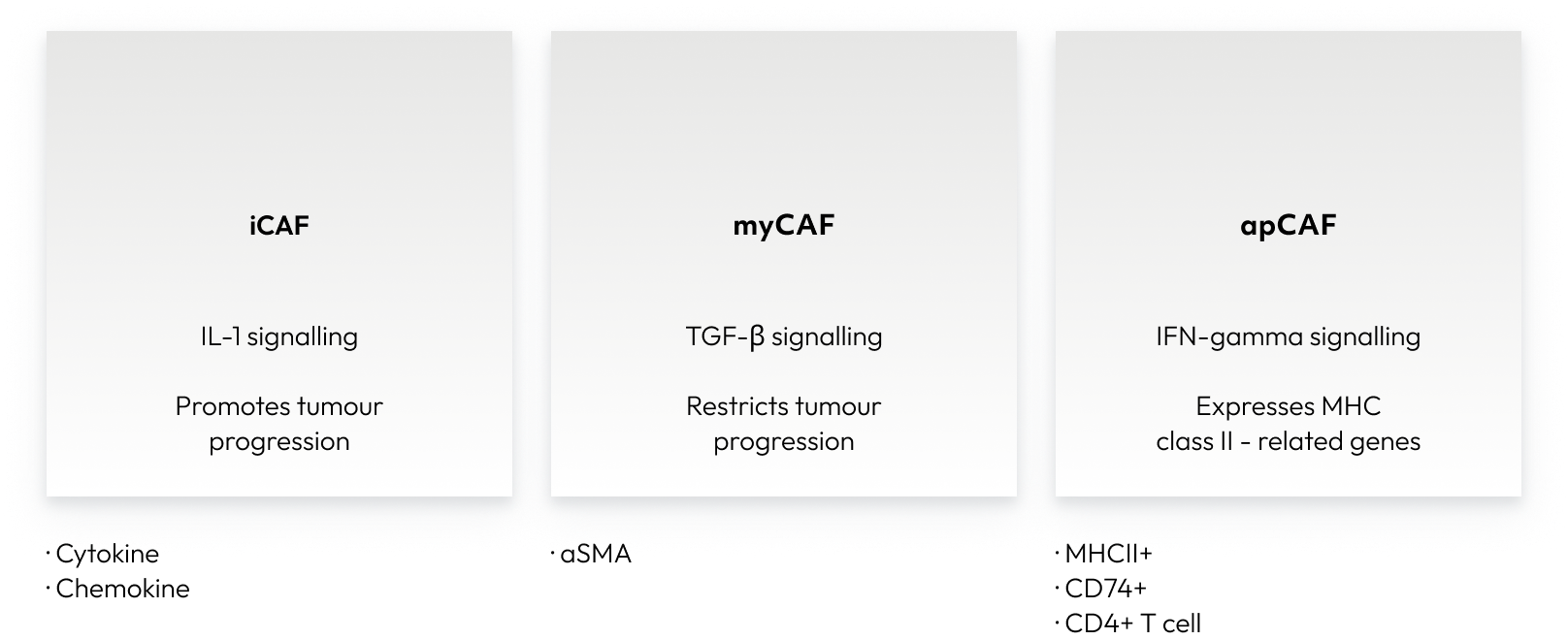
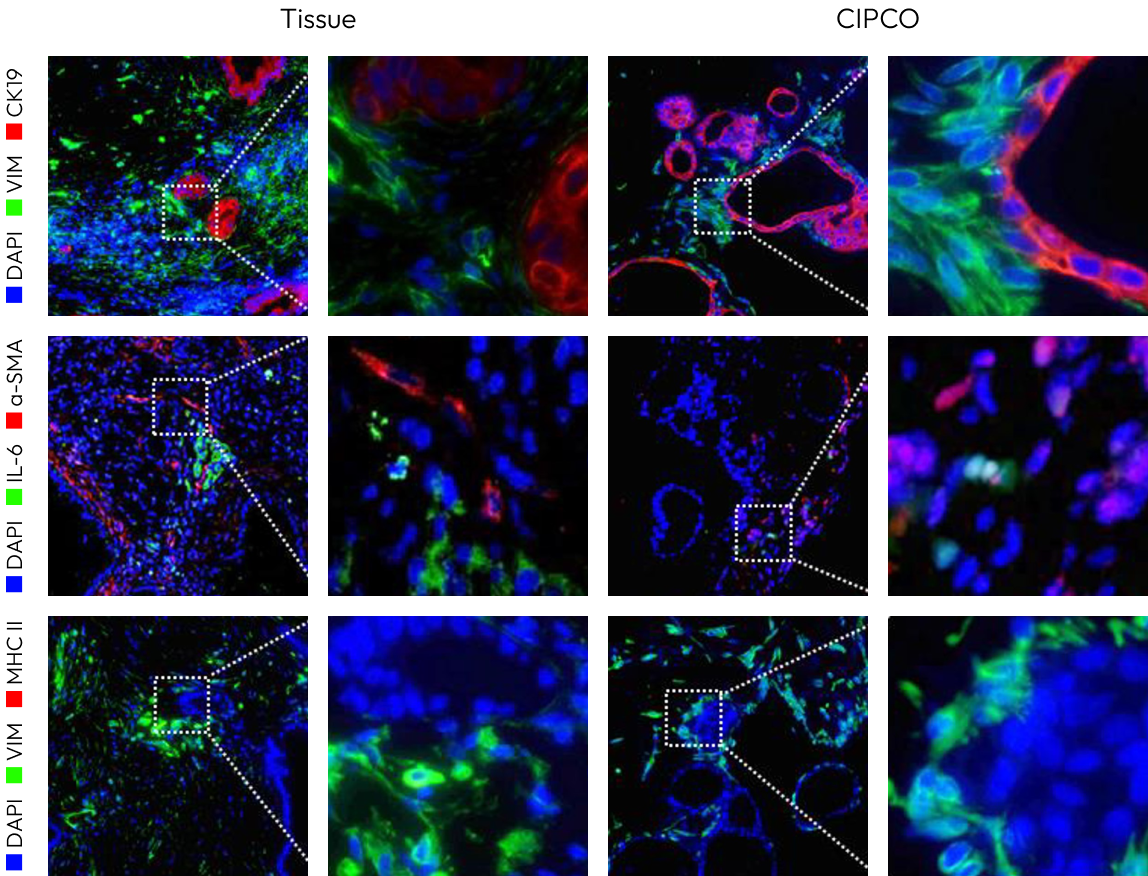
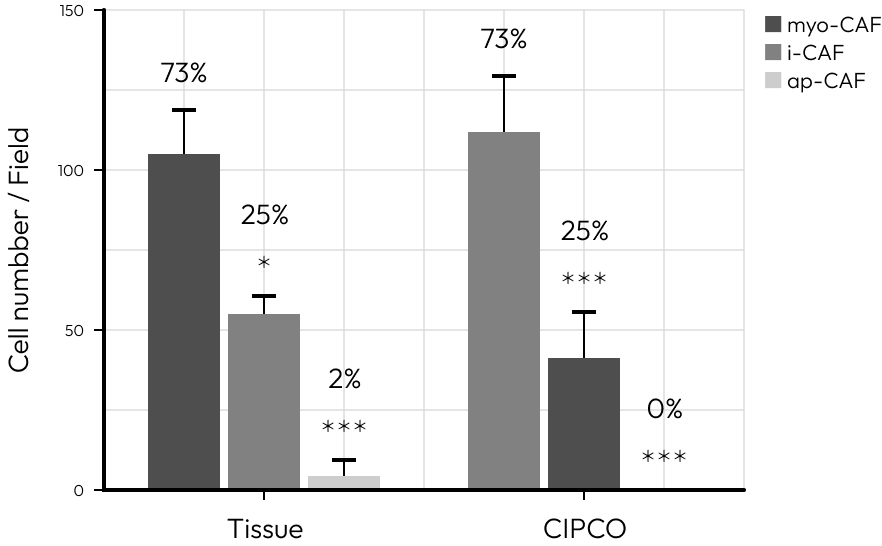
When co-administered with a drug that enhances drug permeability, Gemcitabine sensitivity is increased.
The CIPCO model recreates the physical environment surrounding cancer cells, reproducing drug permeability in patient cancer tissues.
